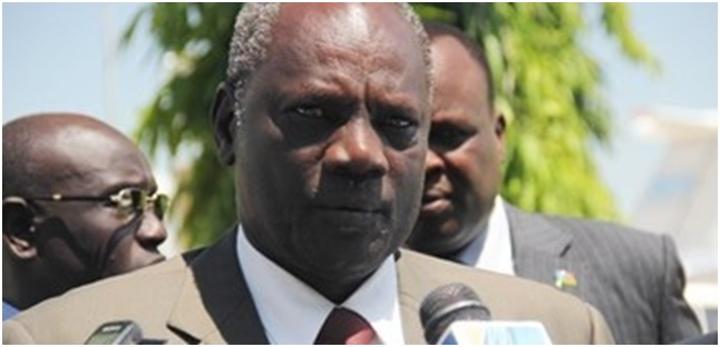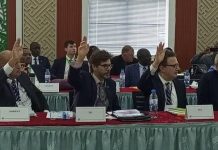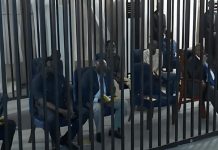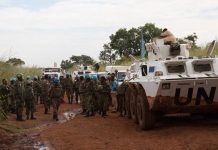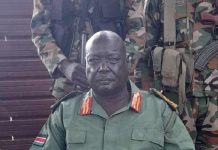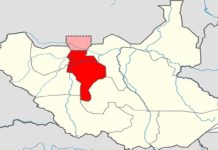Africa-Press – South-Sudan. By William Madouk Garang
The Minister of Information, Telecommunication and Postal Services and Official Government Spokesperson, Michael Makuei Lueth has said that the notion of comprehensive civilian disarmament to curtail rampant insecurity was ‘chase behind a mirage’, saying the national army was not armed enough to undertake the exercise.
Small Arms Survey, a research project based in Geneva, Switzerland, in 2017 reported that as of 2011, there were between 1.9 and 3.2 million small arms in circulation with about two-thirds of these in the hands of civilians in South Sudan.
In a phone call interview on Sama FM yesterday, when asked whether there was a need to buy more guns when civilians possess countless weapons, Mr. Makueisaid, for government to disarm civilians, the government would have to equip the national army to be able to collect those illegal guns.
“You cannot disarm a civilian[s] who is armed just like you, well-armed and even better-armed than you. So, it’s not a question of going to civilians and tell them to bring your arms and they hand them over to you,” Makuei said.
“You will need to have a force that’s capable of disarming the civil population even by use of force, this is where disarmament will come in and you will be in a position to collect all arms from the civil population. So, if you don’t arm your forces in order to disarm them then you are definitely chasing a mirage,” he added.
Mr. Makuei stressed that if an arms embargo was not removed to allow the country to acquire weapons to equip the national army, the collection of illegal guns possessed by civil populations would be an impossible mission.
According to the UN Human Rights Commissioner, the nature of the inter-communal conflicts in South Sudan has taken an increasingly militarized stage, with military-style tactics and sophisticated weapons being used in intercommunal raids.
It also revealed that organized and heavily armed militias carry out planned and coordinated attacks on villages with fighters, dressed in a mix of military fatigues and civilian clothes. They indiscriminately kill people with machetes, knives, AK-47S, and on some occasions with rocket-propelled grenades, the report noted.
In May 2008, President Salva Kiir issued an executive decree calling for a comprehensive civilians’ disarmament in all the ten states in an attempt to end the cycle of violence in the restive states.
Experts believe that, in addition to the direct distribution of weapons to civilians, another source of small arms in South Sudan has been the sale and/or leakage of weapons from soldiers to civilians on an ad hoc basis.
It said the combination of poor training and poor pay contribute to a steady supply of weapons from the organized forces of South Sudan (including military, police, prison services, wildlife, and the fire brigade) to the civilian population.
Experts stated that the flow of weapons from the organized forces has proved to be a problem following disarmament campaigns, as it has been alleged that the collected weapons are often leaked back to the population.
A report by SaferWorld observes that the current deficits in state security provision and the lack of basic infrastructure in South Sudan to enable more effective protection of civilians, responses have to include short-term measures to address immediate security threats as well as long-term measures to improve the structural issues facilitating civilian arms possession.
It said civilian disarmament campaigns can be a part of such an overall strategy but needs to be undertaken alongside other interventions that reduce the demand for weapons and ensure community safety.
“An effective disarmament campaign must be a well-designed and well-thought-out process that has the buy-in of all of the stakeholders, none of which is possible when a reactive, time-sensitive disarmament campaign is mandated,” SaferWorld said in a 2012 report.
For More News And Analysis About South-Sudan Follow Africa-Press

